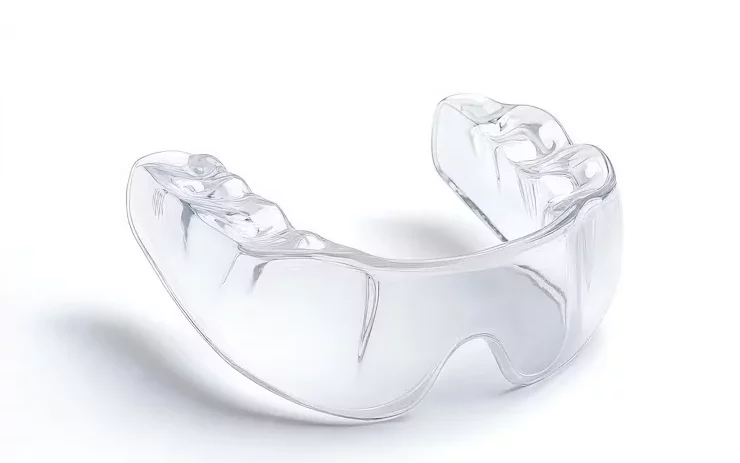
- Home
- About
- Our Team
- Services
- Postoperative Care
- Smile Gallery
- Medical Tourism
- Blog
- Offers
- Contact Us
- Home
- About
- Our Team
- Services
- Postoperative Care
- Smile Gallery
- Medical Tourism
- Blog
- Offers
- Contact Us

If you’ve ever had sensitive teeth pain, you understand how painful it can be. The acute, abrupt shock of discomfort you get after drinking something cold or eating something sweet can wreck your day. But what causes tooth sensitivity, and particularly, how can you stop sensitive teeth pain immediately? This blog will look at the underlying causes of tooth sensitivity and offer practical advice to help you control and decrease sensitive teeth pain.
Tooth sensitivity, also known as dentin hypersensitivity, happens when the inner layer of your teeth, called dentin, is exposed. This can be caused by a variety of conditions, including gum recession, enamel erosion, or tooth structural damage. When the teeth’s protective layers are damaged, external stimuli such as cold, hot, or acidic meals and beverages can cause severe discomfort.
Teeth sensitive to cold is a typical complaint. This occurs when the exposed dentin allows stimuli to reach the nerves inside your tooth, causing discomfort.
Several variables impact tooth sensitivity. Understanding these factors can help you find methods for removing ways to stop sensitive teeth pain immediately.
Enamel Erosion: Acidic meals, drinks, or poor brushing can wear away the enamel and cause sensitivity.
Gum Recession: When the gums recede from the teeth, they expose the tooth roots, which are more sensitive to temperature fluctuations.
Tooth Decay: Cavities can create sensitivity by forming gaps in the enamel that enable hot or cold substances to reach the nerves.
Brushing Too Hard: Aggressive brushing can erode the enamel and induce gum recession, both of which cause pain.
Tooth Grinding: Constant grinding or clenching of the teeth can wear down the enamel and cause dental discomfort.
Dental procedures: Recent dental work, such as fillings or crowns, may result in temporary sensitivity.
The following techniques might give instant relief and effective ways to stop sensitive teeth pain immediately.
Desensitizing toothpaste is one of the simplest ways to alleviate sensitive teeth pain. These toothpastes contain ingredients like potassium nitrate or stannous fluoride, which assist in preventing sensation from reaching the tooth’s nerves. Regular use can considerably minimize sensitivity.
How To Use It: Brush your teeth with desensitizing toothpaste at least twice daily. For speedier relief, apply a tiny quantity immediately to the impacted tooth and wait a few minutes before washing.
Fluoride treatments build tooth enamel while reducing sensitivity. Many dentists suggest fluoride gel for patients with persistent tooth sensitivity. The gel functions as a barrier, keeping temperature fluctuations from harming the tooth’s nerve endings.
How To Use It: Fluoride gels may be administered at home or by a dentist. At-home treatments are available over the counter and may be applied for 4-5 minutes using a brush or tray.
Acidic foods such as citrus fruits, soda, and alcohol can dissolve your enamel, increasing sensitivity. If you want to stop sensitive teeth pain immediately, avoid these foods and beverages until your sensitivity improves.
Tip: If you swallow something acidic, rinse your mouth with water to neutralize the acids.

A saltwater rinse is a natural remedy to reduce pain and inflammation. It helps to clean your mouth and calm the nerves in your teeth.
How To Use It: Swish ½ teaspoon of salt in warm water in your mouth for 30 seconds before spitting it out. For effective relief, repeat this practice twice daily.
Brushing too forcefully or with a toothbrush that has stiff bristles might aggravate tooth sensitivity. A soft-bristled toothbrush is softer on the enamel and gums, reducing further damage.
Tip: Brush your teeth gently in circular motions and avoid brushing immediately after consuming acidic foods or drinks since your enamel will be more fragile at that time.
Grinding your teeth at night may break down your enamel and cause tooth sensitivity. Wearing a mouthguard will protect your teeth from the frequent grinding and clenching that causes more damage.
Tip: You may purchase over-the-counter mouthguards or have your dentist make one for you to ensure a proper fit.

Clove oil contains natural numbing effects that might give short relief for sensitive teeth pain. It includes eugenol, which helps to numb the afflicted region and relieve inflammation.
How To Use It: Apply a tiny quantity of clove oil to a cotton ball and place it immediately on the sensitive tooth. Allow a few minutes to notice relief.
Using toothpaste with high abrasives can gradually wear down your enamel. Switching to a low-abrasive toothpaste will assist in protecting your enamel and avoid future irritation.
Look for toothpaste that is particularly formulated for sensitive teeth and is free of harsh chemicals and whitening ingredients.
Chewing sugar-free gum increases saliva production, which strengthens teeth and reduces sensitivity. Saliva is your mouth’s natural defense against acidity and dental disease, so keeping it wet can help avoid sensitivity.
Tip: Choose gum containing xylitol, which can minimize the amount of dangerous microorganisms in your mouth.
If your tooth discomfort remains or worsens, see a dentist. They can determine the underlying reason and, if required, offer treatments like fluoride varnish, bonding, or root canal therapy. Regular checks will help you manage sensitive tooth discomfort and prevent additional issues.
In addition to quick relief options, you may take the following precautions to prevent sensitive teeth pain in the future:
Practice Good Oral Hygiene: Brush your teeth twice a day with fluoride toothpaste, and floss every day.
Avoid whitening products: Teeth whitening procedures may cause sensitivity. If you have sensitive teeth, consider whitening alternatives such as at-home kits created specifically for sensitive teeth.
Use a Night Guard: If you grind your teeth, a night guard will preserve your enamel and reduce discomfort.
Regular dental checkups: Schedule frequent dental appointments to detect problems like gum disease, enamel erosion, and cavities early on.
Tooth sensitivity can be a challenging condition, but with the correct care and solutions, you can stop sensitive teeth pain immediately. These methods, which include using desensitizing toothpaste and fluoride gel as well as avoiding acidic meals and exercising proper dental hygiene, will help you restore comfort and safeguard your teeth over time.
If you are often experiencing sensitive teeth pain, see your dentist to identify the best course of action and avoid future damage.